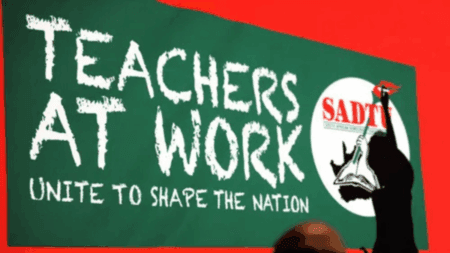In South Africa, government learnerships provide a unique opportunity for individuals seeking to enhance their skills, gain practical work experience, and build a successful career in the public sector. This article will help you understand the essentials of government learnerships, the benefits they offer, and how to navigate your way to a fulfilling career.
What Are Government Learnerships?
Government learnerships are structured programs that combine theoretical learning with practical work experience in a specific field or discipline. Offered by various government departments and state-owned enterprises, these programs are designed to provide individuals with the skills and qualifications required to excel in the workplace. In South Africa, learnerships typically last between 12 to 24 months, depending on the nature of the course and the level of qualification.
These programs are accredited by the Sector Education and Training Authorities (SETAs) and aim to address the skills shortages within the public sector while promoting youth employment and development.
Benefits of Joining a Government Learnership Program
Participating in a government learnership comes with numerous benefits that can set you on the right path for a successful career in the public sector:
- Earn While You Learn: Unlike traditional education, learnerships provide a stipend or allowance, making it possible for learners to support themselves financially while acquiring new skills.
- Obtain Recognized Qualifications: Upon successful completion, participants receive a nationally recognized qualification registered with the National Qualifications Framework (NQF).
- Practical Experience: Learnerships offer hands-on work experience that can make it easier for graduates to secure employment in their chosen field.
- Career Opportunities: Learners who perform well are often absorbed by the department or agency offering the learnership, opening doors to permanent positions within the government.
Who Qualifies for a Government Learnership?
Eligibility criteria for government learnerships vary depending on the specific program and department. However, general requirements include:
- South African citizenship
- A valid South African ID document
- Aged between 18 and 35 years
- Unemployed or employed in a position relevant to the learnership
- Relevant educational qualifications (usually a Grade 12 certificate or higher)
- Willingness to commit to the duration of the learnership
Applicants from previously disadvantaged backgrounds, such as women, people with disabilities, and those from rural areas, are often prioritized.
How to Apply for a Government Learnership
Applying for a government learnership involves a few key steps:
- Identify Available Learnerships: Regularly check government websites and platforms like the Department of Labour, specific SETAs, and state-owned enterprises for advertised learnerships.
- Prepare Your Application: Ensure your CV is up-to-date and tailored to highlight your qualifications and interest in the learnership program. Include certified copies of your ID and educational qualifications.
- Submit Your Application: Follow the instructions provided in the learnership advertisement. Some departments may require online applications, while others accept physical submissions.
- Prepare for Interviews: If shortlisted, be prepared for an interview or assessment to evaluate your suitability for the program.
Exploring Various Government Departments Offering Learnerships
Several government departments and entities offer learnership opportunities, including:
- Department of Public Service and Administration (DPSA): Provides learnerships in fields such as public administration, human resources, and finance.
- South African Police Service (SAPS): Offers learnerships related to policing, safety, and security.
- Eskom: The national power utility provides technical and engineering learnerships.
- Department of Health: Offers programs for individuals interested in healthcare and social services.
- Transnet: Provides learnerships in logistics, engineering, and maritime studies.
Each department has its own set of requirements and application procedures, so it’s essential to research thoroughly before applying.
Skills Development and Career Growth in the Public Sector
Government learnerships are part of South Africa’s broader strategy to promote skills development and reduce unemployment. By completing a learnership, individuals gain valuable skills that are in demand within the public sector, such as project management, communication, administration, and technical expertise. These skills not only prepare learners for immediate employment but also position them for future growth and development within government roles.
Learn more: Networking Tips for Landing a Government Job
Understanding the Stipend and Other Benefits
One of the major advantages of government learnerships is the stipend provided to learners. This monthly allowance, while not equivalent to a full salary, helps learners cover basic expenses during their training. The amount varies depending on the department and the nature of the learnership but usually ranges between R2,500 and R5,000 per month.
In addition to the stipend, some programs offer additional benefits like transport allowances, meals, and access to learning materials.
Challenges and How to Overcome Them in Government Learnerships
While government learnerships offer great opportunities, there can be challenges along the way, such as:
- High Competition: Due to the benefits associated with these programs, there is high competition for a limited number of spots.
- Work and Study Balance: Juggling theoretical learning with practical work can be demanding.
To overcome these challenges, applicants should focus on creating strong applications, preparing thoroughly for interviews, and staying organized to manage their workload effectively.
Frequently Asked Questions About Government Learnerships
Q: Can I apply for multiple learnerships at the same time?
A: Yes, you can apply for as many learnerships as you qualify for, as long as they are not running concurrently.
Q: Do government learnerships guarantee a job?
A: While completing a learnership improves your employability, it does not guarantee a permanent job. However, learners who excel are often offered employment.
Q: Are government learnerships only for young people?
A: Government learnerships typically prioritize youth aged 18 to 35, but some programs cater to older individuals or those seeking career changes.
Tips for Securing a Government Job After Completing a Learnership
- Network Within the Department: Build professional relationships with colleagues and supervisors during your learnership.
- Demonstrate Commitment: Show dedication and a strong work ethic throughout the program.
- Seek Additional Training: Continue improving your skills and qualifications to remain competitive in the job market.
- Leverage Your Learnership Experience: Highlight your learnership experience and the skills you gained when applying for positions.
Learn more: 10 Essential Skills to Secure Government Jobs in South Africa
In conclusion, government learnerships in South Africa offer a pathway to a rewarding career in the public sector. With the right approach and dedication, these programs can open doors to permanent employment, professional growth, and opportunities to contribute meaningfully to the country’s development.






